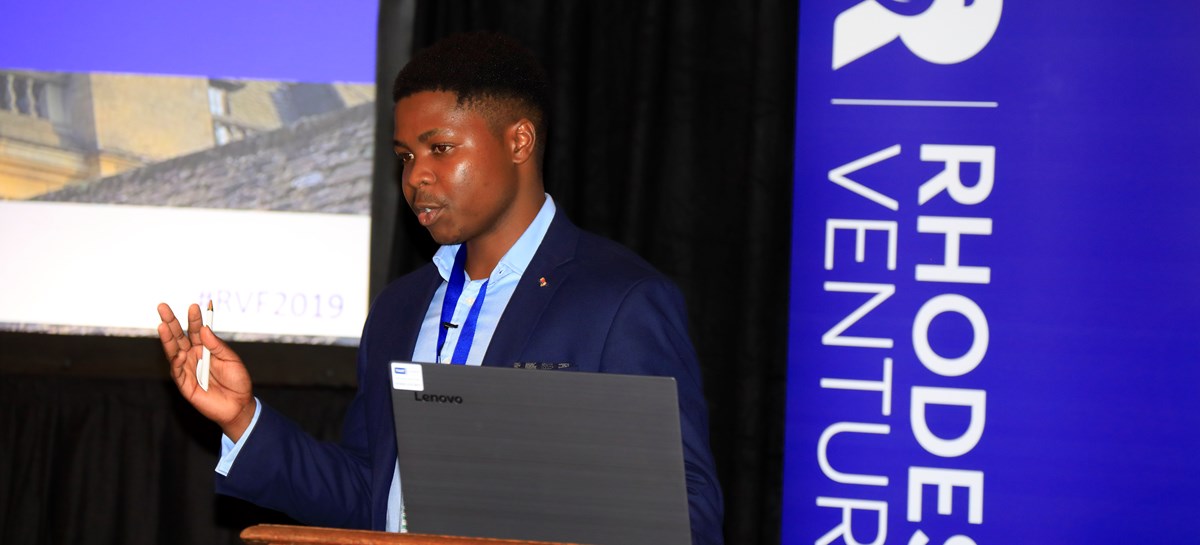
Rhodes Ventures Forum 2019 - A Reflection
For the third consecutive June since 2017, entrepreneurs, venture capitalists, business leaders, scholars and innovators convened at Rhodes House in Oxford for a weekend of enriching dialogue about the ecosystems that connect the venture world to universities and how they can work together to make a positive impact for generations to come. A wealth of experience and a plethora of perspectives were represented, which set the stage for knowledge sharing and diverse viewpoints. While many of the delegates and speakers spend their days within ecosystems that propel venture success (at the helms of accelerators, incubators, foundations and venture funds or as founding CEOs of some of the most important companies today), others sought to understand the inner workings of such ecosystems and perhaps join them. To kick off the forum, Milner Hall was filled with young people trying to make it as entrepreneurs, veterans who have already made it by conventional standards, and everyone in between - making the setting ripe for networking and building relationships.
The theme this year - ‘From Idea to Impact – building sustainable venture ecosystems’ - couldn’t have been timelier. Throughout the weekend we examined the life-cycle of a venture and probed the challenges and opportunities that exist at every stage of venture development. We heard from young founders who are embarking on the early stages of this cycle, as well from those who have iterated on it for decades, those who have entered and exited the cycle with successful ventures several times and the sought-after investors who finance the process at different stages.
I was challenged by future-looking perspectives and bold predictions about our imminent co-existence with artificial intelligence. It was fascinating to hear experts contend with how we ought to position human intelligence to be indispensable in a world where we will likely have machines as colleagues. It was also refreshing to collectively attempt to answer age-old questions that become more important as our climate changes and the muddy waters of inequality deepen. For me, the most important question was on how we can do good for more people - how the forgotten, the marginalised and the poor can also reap dividends and participate in a technologically evolving world? What responsibility should businesses have to the environments and communities in which they operate and vice versa? While shareholder interests have traditionally been the ultimate interests – can the B-Corp model usher in an era where these interests align with global human interests? So that a business's profitability can parallel its contribution to a sustainable future of shared prosperity? Patrick Pichette seemed to think so in his keynote address: ‘The rise of the B-corp’.
Rather surprising were the questions about what entrepreneurship itself is. For a forum convened to celebrate entrepreneurs one would think there is consensus on the meaning of this word and the need for people it describes. One speaker challenged the delegates to think about entrepreneurship beyond building businesses, but rather as a tool for creating things of value. Another took it a step further and made a call for entrepreneurs to seek a more fitting label for themselves. Perhaps for a future where entrepreneurship is a viable vocation, describing entrepreneurs as founders – people who find opportunities and solutions in the shadows of problems that matter, and have the audacity to act – may be more appropriate?
After all was said and done, two takeaways stayed with me from the discussions at the Rhodes Ventures Forum.
First – while new ideas are rare, there is power in understanding and mastering the ‘clichéd’, and in having a commanding grasp on the tried and tested. One trait was obvious among the speakers who inspired me - they had hard skills and immense experience in their fields, which, in my view, is fodder for their key unique insights and ability to innovate. In other words, they mastered the art of their trades before trying to change them. This may come as no surprise to anyone, but to me, it was the missing link between deep seated passion and the act of making an impact which I think separates real changemakers from those who talk about making a change. I have been in the company of the latter for quite some time now.
Second – when it comes to thriving in the venture space, there is no one way to skin a cat, or in this context, there is no one way to succeed or to fail at creating a venture. Interestingly, those who have skinned the proverbial cats and shaped the world in important ways in the process, generally do not always agree on how they did it. This was obvious listening to the autobiographical anecdotes and reflections of many of the speakers who contributed to the ventures forum. Regardless, there were at least three things in common about them, which showed me that while anyone can innovate however they want, one can only do so well if they have some basic skills. Almost all of the entrepreneurs present had an audacious goal to solve an important problem, they all faced challenges and experienced the discomfort of moving forward with uncertainty, and lastly, they leaned on powerful relationships to navigate these challenges. I think these three traits are enduring for anyone wishing to ‘skin the cat’.
Acknowledgements
Thanks to Chaimaa Fadil (United Arab Emirates & Trinity 2018) and Terrens Muradzikwa (Zimbabwe & Keble 2018) for contributing to this piece.
Ngoni Mugwisi (Zimbabwe & Trinity 2017) is a Rhodes Scholar researching for a PhD in power electronics in the Oxford’s Energy and Power Group. He is a partner of the Rhodes Incubator and chaired the organising committee of the 2019 Rhodes Ventures Forum.